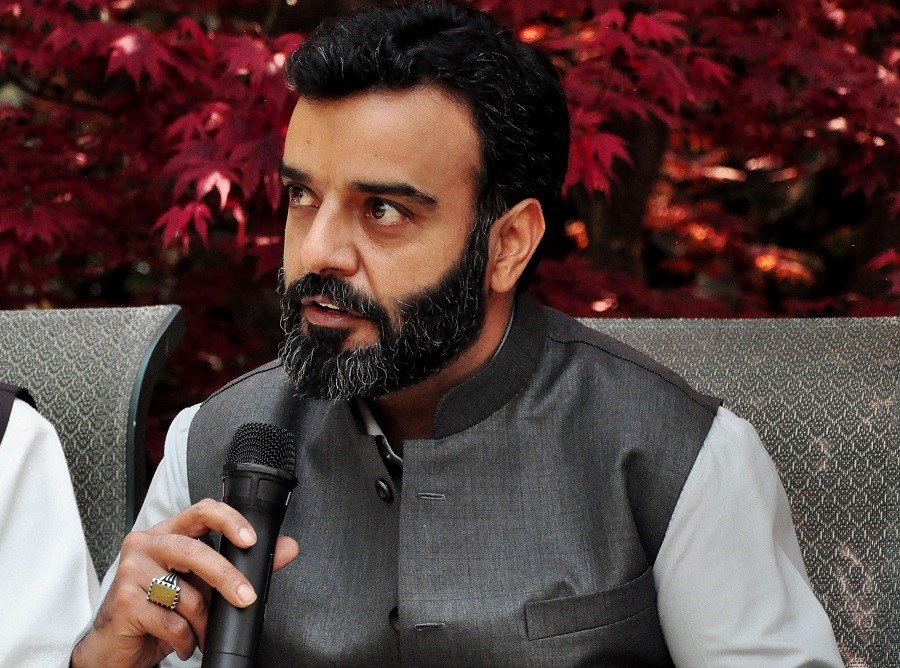Aga Ruhullah Criticizes NC Secretariat: Calls for Reclaiming Constitutional Guarantees in J&K
By: Javid Amin | 11 Sep 2025
A Voice of Dissent Within NC
The political climate in Jammu and Kashmir (J&K) remains turbulent five years after the abrogation of Article 370. While mainstream parties attempt to navigate the altered constitutional and political landscape, internal rifts are increasingly visible.
One such voice is that of Aga Ruhullah Mehdi, a senior leader of the National Conference (NC). Recently, Ruhullah remarked that the NC Secretariat has “failed to empower people amid the current situation”, a sharp critique of his party’s central leadership.
This statement is not just internal party politics—it reflects deep public frustration with the pace, style, and scope of NC’s response to the region’s most pressing issues: civil liberties, youth alienation, trade disruptions, and economic stagnation.
Decoding the Statement: What Aga Ruhullah Meant
When Ruhullah declared that the NC Secretariat had failed, his criticism cut in multiple directions:
-
Leadership’s Passivity
-
He implied that the Secretariat had become reactive rather than proactive, merely responding to crises rather than shaping political discourse.
-
-
Beyond Statehood Restoration
-
While many in NC have demanded the return of statehood, Ruhullah argues this is insufficient.
-
He insists that the party must push for the reinstatement of constitutional guarantees, including Article 370 and Article 35A, which safeguarded J&K’s autonomy and identity.
-
-
Civil Liberties at the Forefront
-
For Ruhullah, the fight is not symbolic—it’s about restoring rights, freedoms, and protections that have been eroded since 2019.
-
In short, Ruhullah’s critique reflects a principled demand for grassroots empowerment, not just political symbolism.
The Context: A Region Under Strain
Ruhullah’s remarks did not emerge in a vacuum. They come at a time when multiple crises converge in J&K:
1. Detention of Mehraj Malik under PSA
-
The controversial detention of AAP J&K president Mehraj Malik has become a flashpoint.
-
Critics, including Mehbooba Mufti, argue that the PSA is being misused to silence political dissent.
-
For Ruhullah, such actions highlight the shrinking democratic space—an issue NC should be leading on.
2. Highway Closures Crippling Trade
-
Frequent highway closures have left traders, transporters, and common commuters in despair.
-
The J&K economy, already fragile post-2019, faces repeated disruptions, undermining both livelihoods and public confidence.
3. Public Unrest over Food and Infrastructure
-
Recent food safety scandals, coupled with crumbling infrastructure, have fueled resentment.
-
Citizens feel abandoned by institutions, with NC accused of failing to effectively articulate or escalate these concerns.
Against this backdrop, Ruhullah’s words resonate as a mirror to public frustration.
Aga Ruhullah: A Reformist Voice Within NC
Unlike many in the NC leadership who adopt a cautious, conciliatory tone, Ruhullah represents a reformist undercurrent.
His Core Arguments:
-
Constitutional Guarantees over Symbolism
-
He prioritizes the return of constitutional protections over what he views as symbolic demands like statehood.
-
For him, the essence of Kashmiri politics lies in autonomy, dignity, and identity.
-
-
Grassroots Empowerment
-
Ruhullah emphasizes strengthening Panchayati Raj institutions, youth participation, and civic engagement.
-
He sees empowerment as more than speeches; it requires actionable reforms.
-
-
Transparency and Accountability
-
He calls for internal reform within NC, urging the Secretariat to become more responsive to people’s concerns.
-
This positioning sets him apart, often putting him at odds with more moderate or status-quo factions within NC.
Why This Matters: The Future of NC and Kashmiri Politics
Ruhullah’s critique forces the NC—and Kashmir’s political class more broadly—to confront uncomfortable truths:
-
Is the restoration of statehood enough?
-
Has NC’s central leadership lost touch with grassroots realities?
-
Are parties failing to address youth disenfranchisement and economic stagnation?
His words reflect a wider mood among Kashmiris, especially young people, who feel their political voices are ignored while their daily struggles remain unaddressed.
A Generational Divide Inside NC?
Ruhullah’s stance also highlights a generational divide within the party.
-
The older guard emphasizes cautious negotiation, symbolic demands, and maintaining a working relationship with New Delhi.
-
The younger voices, like Ruhullah, push for assertive positions on constitutional rights, dignity, and accountability.
This tension could shape NC’s electoral strategy, internal cohesion, and its future relevance in Kashmiri politics.
Call to Action: What Ruhullah Wants
By openly criticizing the Secretariat, Ruhullah is issuing a call to action:
-
For the NC Leadership:
-
Stop being defensive and reactive.
-
Develop a clear roadmap for constitutional and democratic restoration.
-
-
For the People of J&K:
-
Demand accountability not just from the government but also from the mainstream opposition parties.
-
Engage in grassroots movements that push for rights and reforms.
-
-
For Civil Society and Media:
-
Keep the spotlight on **issues that matter—youth unemployment, economic stagnation, civil liberties—**rather than only headline politics.
-
Bottom-Line: A Test of Credibility for NC
Aga Ruhullah’s statement that the NC Secretariat has failed to empower people is more than internal criticism—it’s a warning bell.
If NC continues with a reactive, symbolic approach, it risks alienating the very people it claims to represent.
If, however, it heeds voices like Ruhullah’s and embraces transparency, accountability, and grassroots empowerment, it could reclaim lost political space in Kashmir.
Ultimately, his words reflect a larger struggle for identity, dignity, and democratic space in post-Article 370 Jammu and Kashmir—a struggle where the future of NC itself hangs in the balance.


